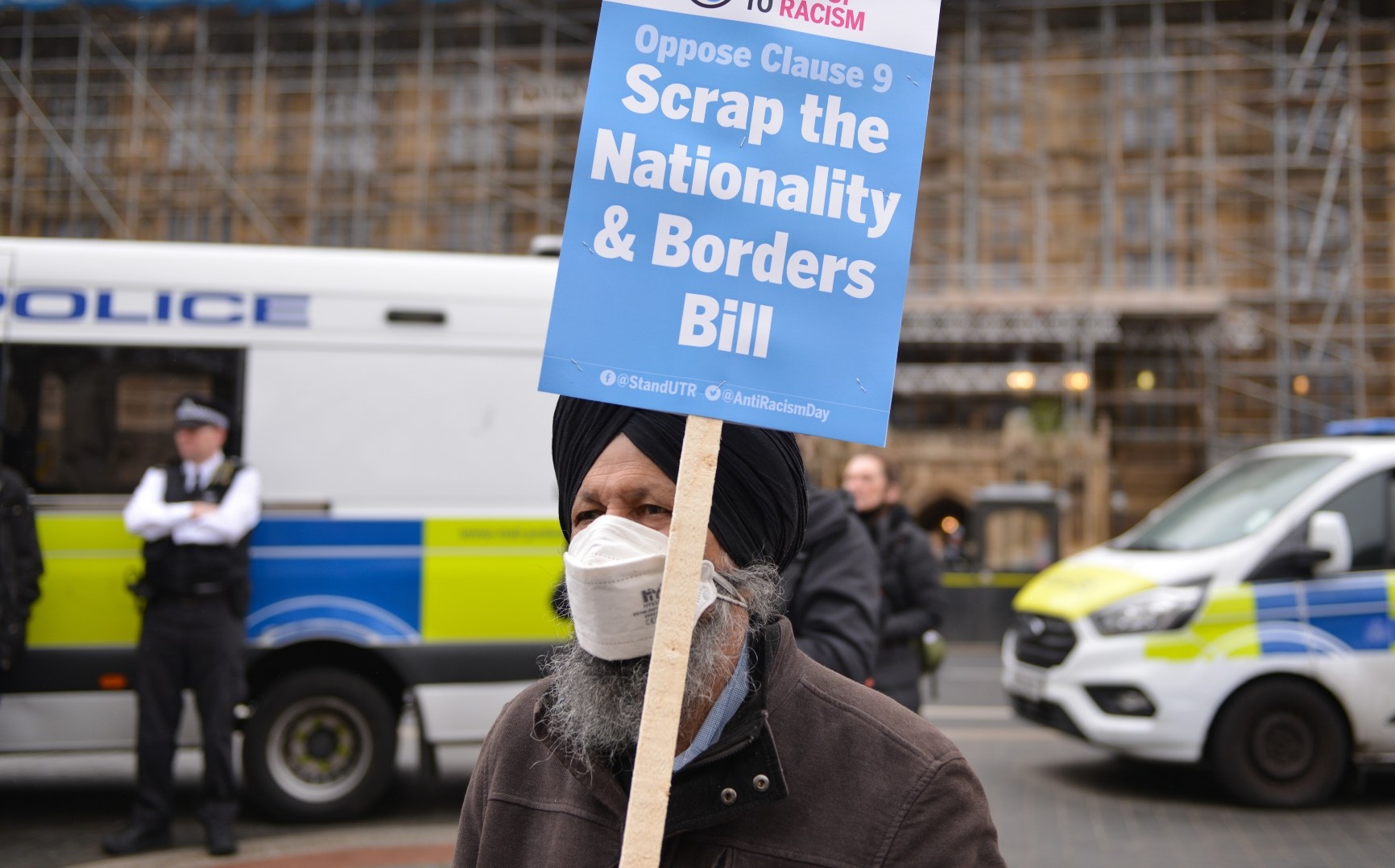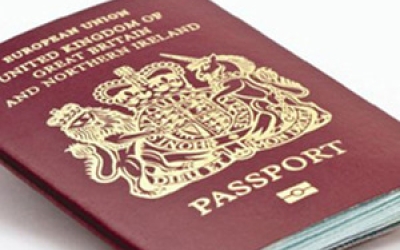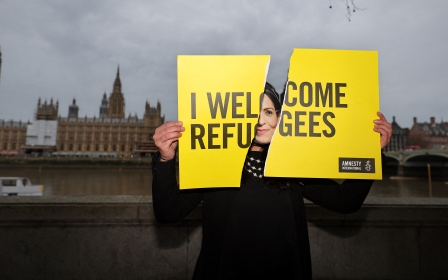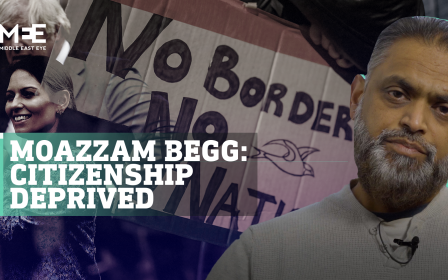UK Nationality and Borders Bill: Setback for government over citizenship-stripping powers

The UK government has suffered a parliamentary setback over proposed legislation that would give it powers to secretly strip people of their citizenship.
Members of the House of Lords, the UK parliament’s upper chamber, voted on Monday against the extension of already far-reaching powers, as they continue to consider amendments to the government’s controversial Nationality and Borders Bill.
However, the House of Lords will not have the final say on the bill. MPs in the House of Commons, where the government has a large majority, could yet reject the Lords’ proposed changes.
Nor does the removal of the amendment have any effect on existing citizenship-stripping powers, which have been extensively used in recent years against British nationals who travelled to Syria.
The UK and citizenship-stripping powers
+ Show - HideThe UK has been described by researchers as a “global leader in using citizenship deprivation as a counterterrorism measure”.
Historic citizenship-stripping powers targeted at naturalised citizens on disloyalty grounds had largely fallen into disuse prior to 2002, when the government introduced new measures in an attempt to revoke the citizenship of Abu Hamza, an Egyptian-born cleric subsequently convicted of terrorism in the US.
The 2002 legislation allowed for British-born nationals as well as naturalised citizens to lose their nationality rights. Successive governments gradually broadened the scope of the powers so that home secretaries can now deprive anyone of citizenship if they are satisfied that doing so is “conducive to the public good” and would not leave an individual stateless.
No criminal conviction is required. Letters often state that individuals have been assessed as presenting “a risk to the national security of the United Kingdom”.
The government’s use of the powers surged to unprecedented levels in response to the perceived threat posed by British nationals returning from Syria.
Between 2010 and 2015, 33 people were stripped of their citizenship, according to Home Office figures. In 2016, 14 people were deprived, and in 2017 the number jumped to 104.
In 2018, the figure was 21, and in in 2019 - when Shamima Begum was among those targeted - it was 27. It then dropped to ten in 2020 and eight in 2021.
Some subjects of citizenship-stripping orders argue that they have been left effectively stateless, because the government bases its assessment that they are dual nationals on a right of citizenship to a parent’s country of birth, even if they have never taken up that citizenship or even visited the country.
In some cases the Special Immigration Appeals Commission, which rules on citizenship cases, has agreed: it has ruled in favour of British nationals of Bangladeshi descent on the grounds that Bangladesh does not consider them citizens if they have not claimed Bangladeshi nationality before the age of 21.
Human rights organisations and lawyers have compared the powers to “medieval exile and banishment”. Critics also point out that the powers create a two-tier system in which only those deemed to be dual nationals are at risk of losing their British citizenship; a measure that discriminates against naturalised citizens, immigrants and their children.
Critics argue that the powers discriminate against migrant communities and minorities, because they can only be used against people with dual nationality or an entitlement to citizenship of another country.
New MEE newsletter: Jerusalem Dispatch
Sign up to get the latest insights and analysis on Israel-Palestine, alongside Turkey Unpacked and other MEE newsletters
The proposed extension of the powers, contained in clause nine of the bill, would remove the need for the government to give notice when depriving someone of citizenship in some circumstances.
'What this law does is that in the United Kingdom, in our courts, we punish two people convicted of the same crime differently based upon their heritage'
- Baroness Warsi
Speaking in favour of the removal of clause nine, Baroness D’Souza said: “The secret power to deprive citizenship without notice and/or appeal threatens our cherished British values of fair play and the rule of law. It would also risk unduly affecting ethnic minority communities.”
Baroness Warsi, a peer for the governing Conservative Party, said citizenship-stripping powers created a two-tier system in which she and other children of migrants to the UK were “second-class citizens”.
“What this law does is that in the United Kingdom, in our courts, we punish two people convicted of the same crime differently based upon their heritage,” she said.
"We may not have taken this moment to put right the wrongs of the past but the least we can do is to stop a bad law becoming worse."
The House of Lords had earlier considered amendments to clause nine proposed by Lord Anderson, the former reviewer of counter-terrorism legislation, which would have limited the circumstances in which citizenship could be revoked without notice.
Baroness Williams, a Home Office minister, also said there were circumstances in which no-notice powers would be necessary, citing the example of “an [Islamic State group] supporter who has committed terrorist attacks and is hiding in the mountains in Syria”.
But the House of Lords voted by 209 votes to 173 to remove clause nine from the bill entirely.
It also rejected government proposals to divide asylum into two groups based on whether they arrived in the UK via sanctioned or unsanctioned routes, and to make it a criminal offence to arrive in the UK without permission.
Campaigners welcomed the government’s defeat, and called on ministers and MPs to look again at citizenship-stripping powers.
“Peers have heard the outcry against this attempted power grab by the home secretary. Now MPs must listen, and strike this discriminatory provision from the bill," said Maya Foa of campaign group Reprieve.
“The government's powers to strip citizenship are already the broadest in the G20. They are used disproportionately against people from ethnic minority communities. Today the House of Lords said: enough."
Zara Mohammed, the secretary-general of the Muslim Council of Britain, said: "This is really welcome news and a great testament to the strong voices across all communities who have highlighted how draconian and damaging this clause would be."
Middle East Eye delivers independent and unrivalled coverage and analysis of the Middle East, North Africa and beyond. To learn more about republishing this content and the associated fees, please fill out this form. More about MEE can be found here.






